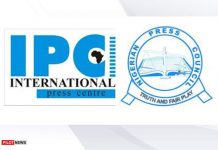Review of the Code of Ethics of Nigerian Journalists, better management of media firms and stricter barriers to entry are ways by which the twin professions of journalism and public relations can tackle the Brown Envelope problem, experts have submitted.
Mr Nn’emeka Maduegbuna, chairman of public relations firm C&F Porter Novelli and Dr Marcel Mbamalu, News Editor of The Guardian, led an expert discussion at a webinar of The Jackson Alumni Global Network on Sunday 2 August 2020. Alumni of the department of mass communication, University of Nigeria organised the session.
The Brown Envelope Syndrome is the payment of money to journalists who attend or cover events. Over the years, it has taken the garb of a traditional rite and created room for non-journalists to pose as one at events solely to collect the brown envelope.
Maduegbuna identified six factors that gave rise to the Brown Envelope Syndrome. They include the general moral haze in the country, poorly managed media establishments, and pressure from companies who want to see their executives in glowing light in the media. Others are over-emphasis by corporates -mainly banks – to see their executives on front pages, the consequences of the introduction of “commercial news” in broadcasting following the commercialisation of NTA and the media bowing to the interest of advertisers.
The consequence has been the weakening of the pillars of the media and its inability to stand independent.
Maduegbuna submitted that “there is no justification for brown envelope”. He averred that while brown envelopes in the media cannot be divorced from the general corruption in the larger society, change is possible through better management of media organisations.
Dr Marcel Mbamalu defined the brown envelope as “any temptation wrapped in monetary or other forms of inducement” to the journalist. The consequence has been a loss of credibility of the media, loss of audience confidence and ultimately, loss of jobs.
Mbamalu called for a review of the Code of Ethics of Nigerian Journalists, enacted in 1998, saying it does not reflect the realities of today as some of its provisions “contain booby traps for the journalist today.” He called for “clear ideology and identity for public relations and journalism”, improvement in training and retraining, the definition of the boundaries of gifts and better rewards for journalists. He stated, “Important gifts are no longer in brown envelopes, but now in white vessels”.
Participants included Prof Pat Utomi, founder of the Centre for Values in Leadership, Mr Ugo Onuoha, a former managing director of Champion Newspapers Limited, HRM Akor Obiechina and Prof Chinedu Mba of the University of Alberta, Canada. There were Ikem Okuhu, author of Pitch, a hard-hitting critic of the marketing communications sector, and players in public relations and journalism.
Prof Utomi recommended stricter rules for ownership of media houses: only persons committed to running stable enterprises should be allowed to own media houses. He said journalists should boldly stand up to media owners who do not show commitment to the sustainability of their enterprises manifested in unpaid salaries.
A former MD of Champion Newspapers Limited, Ugo Onuoha, said the situation with journalism in Nigeria had deteriorated so much. He doubted if there is such a thing as a “profession” of journalism. One of the features of a profession is the existence of barriers to entry, and he noted that there was none in journalism.
The Jackssonites Global Network holds fortnightly webinars on issues in media and communication. The webinars fit into the objectives of the association that include to support the study, teach and practice of communication in Nigeria and to engage in media advocacy and development.
Previous sessions had looked at Understanding and Tackling Fake News as well as Agenda Setting asking the question, Do the Media Set the Agenda or Mirror The Agenda?
The Department of Mass Communication, University of Nigeria offers a full suite of courses in all disciplines of mass communication. Students specialise in print, broadcast or the integrated marketing communication fields of advertising and public relations.
Hitherto known as the Department of Journalism, Jackson Building, the Department of Mass Communication at the University of Nigeria, is the first full-fledged university department to offer academic and practical training in journalism and related fields. It commenced in 1961 as one of the pioneering courses of the new University of Nigeria. The departmental building is called the Jackson Building, and from the name students and alumni derived the cognomen, Jacksonites.
UNN founder and Nigerian journalism great Dr Nnamdi Azikiwe called the department after the father and son team of John Payne and Thomas Horatio Jackson, publishers of the Lagos Weekly Record, one of the most successful papers in the early Nigerian press. The Lagos Weekly Record (1891-1930) ran for 37 years, packed a sharp pen and was an active voice against colonial practices against Nigerians.





